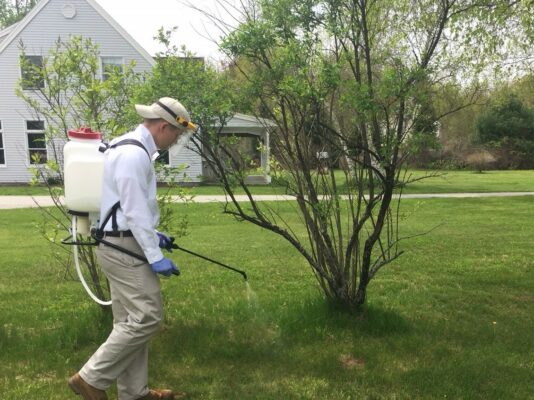
Mosquitoes are a common nuisance in New England, and they can also carry diseases that can make people and animals very sick. In this blog post, we will discuss the different types of mosquitoes found in New England, the diseases they carry, and how to avoid them. We will also provide tips on how to choose the right mosquito repellent.
Reducing your chances of getting bitten by these insects can reduce your risk of disease and irritating bug bites. And Modern’s Homecare Mosquito, Flea, and Tick service can help!
Types of Mosquitoes in New England
There are several different types of mosquitoes found in New England, but the most common ones are:
- Culex mosquito
- The Culex mosquito is the type of mosquito that carries West Nile Virus and Eastern Equine Encephalitis.
- Aedes mosquito
- The Aedes mosquito is the type of mosquito that carries Zika virus and dengue fever.
- Anopheles mosquito
- The Anopheles mosquito is the type of mosquito that carries malaria.
Ready to reduce the risk of mosquitoes? Call Modern today at 1-800-323-7378!
Diseases Carried by Mosquitoes
Mosquitoes can carry a variety of diseases, including West Nile Virus, Eastern Equine Encephalitis, Zika virus, dengue fever, and malaria.
- West Nile Virus is a virus that can cause mild to severe illness in humans.
- Eastern Equine Encephalitis is a virus that can cause severe illness in humans, including encephalitis.
- Zika virus is a virus that can cause birth defects in babies born to infected mothers.
- Dengue fever is a virus that can cause severe illness in humans.
- Malaria is a disease that is spread by mosquitoes and can cause severe illness and death in humans.
How to Avoid Mosquitoes
There are several things you can do to avoid mosquitoes, including:
- Wearing long-sleeved shirts and pants
- Using mosquito repellent
- Staying in air-conditioned or screened-in areas
- Removing standing water from your property
- Hiring the pest control pros at Modern Pest
How to Choose the Right Mosquito Repellent
There are many different types of mosquito repellent available, and it is important to choose one that is effective and safe for you and your family. Some factors to consider when choosing a mosquito repellent include:
- The type of mosquito that is most common in your area
- The duration of protection you need
- The ingredients in the repellent
- The safety of the repellent for children and pregnant women
Take back your yard from mosquitoes and call Modern today at 1-800-323-7378
The following are active ingredients in skin-applied insect repellents registered by the United States Environmental Protection Agency (EPA):
- Catnip oil (Nepeta cataria, also known as catmint)
- Oil of citronella
- DEET
- IR 3535 (3-[N-Butyl-N-acetyl]-aminopropionic acid, ethyl ester)
- p-Menthane-3,8-diol (pmd)
- Oil of Lemon Eucalyptus (contains pmd, but is a separately regulated pesticide chemical)
- Picaridin
- 2-undecanone (or methyl nonyl ketone)
Permethrin
Permethrin is an insecticide of the pyrethroid family. It is not to be applied to skin. But if you spray a repellent containing permethrin on your clothing and gear, it will last you for several washes. It is poisonous to cats.
The Modern Solution
Mosquitoes can be a nuisance, but they can also carry diseases that can make people and animals sick. By following the tips in this blog post and signing up for Modern’s Homecare Mosquito, Flea, and Tick service, you can help to reduce your risk of being bitten by a mosquito and becoming ill.
Our Homecare Mosquito, Flea, and Tick service protects against all three disease-spreading vector pests. We’ll help you enjoy your yard while we minimize the health risks to your family and pets. The service consists of six monthly services, from April through September. Call 1-800-323-7378 to schedule service.
